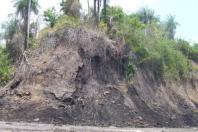Uzbekistan to start oil shale mining?
Uzbekistan looks to become Central Asia's first oil shale producer
Clare Nuttall in Astana
February 15, 2013
Uzbekistan could become the first Central Asian country to start mining oil shale as early as 2013 as part of plans by the government to address dwindling oil production and domestic fuel shortages. However, Tashkent is exploring other options too, including construction of a $4bn gas-to-liquids plant and smaller scale investments into renewables.
Preliminary studies on mining oil shale – rock that contains a solid organic compound known as kerogen, which is something between crude oil and bitumen – have already been carried out by companies from Japan, Russia and South Korea. State oil and gas company Uzbekneftegaz is now planning a $600m oil shale project with the aim of launching production. If the project goes ahead, it will be the first attempt to produce non-conventional hydrocarbons in oil and gas rich Central Asia.
Back in 2010, Uzbekistan's Uzbekneftegas and Uzbek government agencies signed several agreements with Japanese companies to develop the country's oil shale reserves - estimated at around 47 billion tonnes. The Japan Oil, Gas & Metals National Corp (JOGMEC) signed an agreement with Uzbekneftegaz and Uzbek government agencies to explore two oil shale deposits. Two other Japanese companies, JGS and Technopian, announced plans to evaluate the feasibility of shale deposits.
Matthew Shaw, analyst at consultancy Wood Mackenzie, points out that the industry has known about the existence of oil shale in Uzbekistan for many years, but little was done to develop the resource "because this is a country where nothing happens quickly", rather than any doubts about the strengthen of the fundamentals of investing into oil shale. "There is some oil production, but the volume is falling quite rapidly. Production of oil shale would reduce their dependence on imports of oil products from Kazakhstan, which has its own shortages and relies on imports from Russia," Shaw tells bne .
Decline and fall
Uzbekistan's oil production has been in steady decline for more than a decade, falling from 171,000 barrels per day (b/d) in 2001, to 125,000 b/d in 2006 and dropping to just 86,000 b/d by 2011, according to the "BP Statistical Review of World Energy, 2012". Meanwhile, oil consumption was up by 0.7% in 2011 to 91,000 b/d. Natural gas production has fluctuated between 52bn and 63bn cubic metres (cm) for the last decade, with 57bn cm produced in 2011, of which 49.1bn cm was consumed domestically.
A 2011 report from Tashkent-based think-tank the Center for Economic Research (CER) forecast that at current consumption rates, Uzbekistan's oil is expected to run out in just over a decade unless significant new finds are made. Uzbekistan will have enough gas for the next 28-30 years – less if exports to China increase as planned. There are concerns that the Uzbek government is prioritising gas exports, a source of hard currency, over the needs of the population – a fear that has grown since Uzbekistan started exporting gas to China in mid-2012.
In addition to dwindling reserves, Uzbekistan also lacks refining capacity and has seen periodic shortages of gasoline and other oil products, with drivers forced to queue for several hours at petrol stations, and occasional cutbacks to public transport services.
Tashkent jealously guards its foreign currency reserves, and the authorities are not keen to use them to pay for increases in the imports of oil products. Oil products can also be difficult to obtain for Uzbekistan and the other countries of southern Central Asia. While Central Asia has a large amount of oil and gas, the region's processing capacity is low, and many of the refined products consumed are imported from Russia via Kazakhstan, which suffers its own shortages.
While planning oil shale investments, Tashkent is also looking at other options, the most ambitious of which is the planned $4bn gas-to-liquids (GTL) plant to covert some of Uzbekistan's gas into liquid fuels. State-owned Uzbekneftegaz has set up a joint venture with Malaysia's Petronas and Sasol, which has built similar facilities in Qatar and Nigeria. The three companies are currently in the final planning stages for the plant, and a final decision is expected in the second half of 2013.
If the project goes ahead, the plant will resolve many of Uzbekistan's fuel shortages. It is expected to have processing capacity of 38,000 b/d, and produce diesel, naphtha and kerosene. However, Sasol points out in a 2012 statement that, "Uzbekistan is one of only two double-landlocked countries in the world and was not an obvious prospect for an industry which held the belief that GTL projects were only commercially viable with export access to the sea."
Wood Mackenzie's Shaw says construction of the GTL plant would require a bigger upfront investment than mining oil shale, but could be transformational if it goes ahead. "However, there are a lot of challenges to overcome, including the high cost of bringing equipment into Uzbekistan," he says.
Meanwhile, Tashkent has not lost hope of reviving conventional oil production with a new find, and both Uzbekneftegas and international oil companies have announced plans to step up exploration work. Companies expected to carry out drilling work in 2013 comprise Petronas, Petrovietnam, South Korea's KNOC and KOGAS, and the Aral Sea consortium, which includes Uzbekneftegaz, CNPC, LUKOIL, KNOC and POSCO. Lukoil alone is planning to invest $678.5m in Uzbekistan in 2013.
http://www.bne.eu/story4555/Uzbekistan_looks_to_become_Central_Asias_fir...


